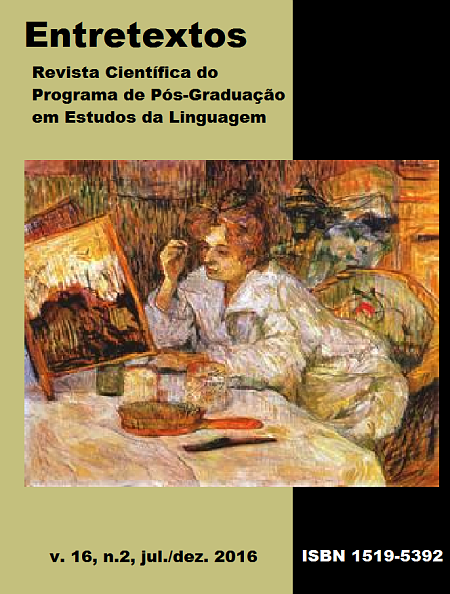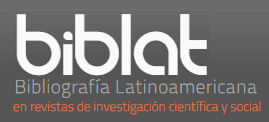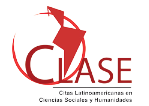Internetese: slang neologisms in social networks
DOI:
https://doi.org/10.5433/1519-5392.2016v16n2p179Keywords:
Sociolinguistic, Slangs, Hypertexts, InterneteseAbstract
This paper deals with slangs created and used in social networks. It aims at analyzing slang neologisms and determining the contribution of the cyberspace for the formation of new terms based on new configurations of interaction observed with the emergence of social networks. It is grounded on the Theory of Linguistic Variation and Change (LABOV, 1994, 2008), in Preti’s conception of slangs (PRETI, 2006) and in studies of hypertext (MARCUSCHI, 2005). Using methodological procedures, it analyzes slangs that have been effectively created by and within social networks. It also describes different aspects of those slangs and sets the profile of the user of these neologisms based on the formulation of categories of analysis to interpret the data. In order to do so, it makes use of an exploratory quantitative-qualitative research, using samples of language collected in social networks. With the analysis of the collected data, it concludes that Internetese is, in fact, a neological set of the Internet and slang is a variation observed based on what its adoption and use represent. KEYWORDS: Sociolinguistic. Slangs. Hypertexts. Internetese.Downloads
References
ALVES, Ieda Maria. Neologismo: criação lexical. São Paulo: Ática, 2002.
BATISTA JUNIOR, José Ribamar Lopes; SILVA, Francisco das Chagas Rodrigues da. Gêneros textuais, virtuais e rede sociais: práticas de leitura e escrita no ensino médio profissionalizante. In: SIMPÓSIO HIPERTEXTO E TECNOLOGIAS NA EDUCAÇÃO REDES SOCIAIS E APRENDIZAGEM, 3., 2010, Recife. Anais... Recife: UFPE: Núcleo de Estudos de Hipertexto e Tecnologia na Educação, 2010.
DUBOIS, Jean (Org.). Dicionário de linguística. São Paulo: Cultrix, 1973.
FERREIRA, Aurélio Buarque de Holanda. Novo Aurélio Século XXI: o dicionário da língua portuguesa. Rio de Janeiro: Nova Fronteira, 1999.
GIL, Antonio Carlos. Como elaborar projetos de pesquisa. 4. ed. São Paulo: Atlas, 2002.
HOUAISS, Antonio; VILLAR, Mauro de Salles. Dicionário Houaiss da língua portuguesa. Rio de Janeiro: Objetiva, 2001.
IBOPE – Instituto Brasileiro de Opinião Pública e Estatística. Gerações Y e Z: juventude digital. 2010. Disponível em: http://www.ibope.com.br/pt-br/noticias/Documents/geracoes%20_y_e_z_divulgacao.pdf. Acesso em: 24 ago. 2015.
KOCH, Ingedore G. Villaça. Hipertexto e construção do sentido. Alfa, São Paulo, 51 (1): 23-38, 2007.
KOMESU, Fabiana; TENANI, Luciani. Considerações sobre o conceito de “internetês” nos estudos da linguagem. Linguagem em (Dis)curso, Palhoça, v. 9, n. 3, p. 621-643, set./dez. 2009.
LABOV, William. Padrões sociolinguísticos. Tradução de Marcos Bagno, Maria Marta Pereira Scherre e Caroline Rodrigues Cardoso. São Paulo: Parábola Editorial, 2008.
LABOV, William. Principles of linguistic change. Oxford: Blackwell, 1994. v. 1
LANDOW, George P. Hypertext 2.0: the convergence of contemporary critical theory and technology. Baltimore, Maryland: Johns Hopkins, 1997.
LÉVY, Pierre. As tecnologias da inteligência: o futuro do pensamento na era da informática. São Paulo: 34, 1993.
MARCELINO, Ueslei. Amanda maciente. 2015. Disponível em: https://www.facebook.com/photo.php?fbid=858329667537565&set=p.85832. Acesso em: 15 out. 2015.
MARCUSCHI, Luiz Antonio. Gêneros textuais emergentes no contexto da tecnologia digital. In: MARCUSCHI, Luiz Antonio; XAVIER, Antonio Carlos. (Org.). Hipertexto e gêneros digitais. Rio de Janeiro: Lucerna, 2005. p. 13-67.
OLIVEIRA, Mauro de. As mudanças na comunicação e o uso adequado de redes sociais. 2014. Disponível em: http://pt.slideshare.net/maurojornalista/as-mudanas-na-comunicao-e-o-uso-adequado-de-redes-sociais-anhembi-morumbi-e. Acesso em: 15 out. 2015
PRETI, Dino. A gíria e outros temas. São Paulo: Edusp, 1984.
PRETI, Dino. A gíria na língua falada e na escrita: uma longa história de preconceito social. In: PRETI, Dino. (Org.). Fala e escrita em questão. São Paulo: Associação Editorial Humanitas, 2006. v. 4, p. 241-255.
RIBEIRO, Ana Elisa. Leituras sobre hipertexto: trilhas para o pesquisador?. In: SIMPÓSIO NACIONAL DE LETRAS E LINGUÍSTICA, 11., SIMPÓSIO INTERNACIONAL DE LETRAS E LINGUÍSTICA, 1., 2006, Uberlândia. Anais... Uberlândia, 2006. Disponível em: https://www.ufpe.br/nehte/artigos/. Acesso em: 15 out. 2015.
SCARAMAL, Junior; KRAEMER, Alessandro. A influência da internet nas variações linguísticas. In: CONGRESO ARGENTINO DE CIENCIAS DE LA COMPUTACIÓN, 17., La Plata. 2011. Anais... La Plata:UNLP, 2011. p. 461-468.
TRASK, Robert Lawrence. Dicionário de linguagem e linguística. São Paulo: Contexto, 2004.
WEINREICH, Uriel; LABOV, William; HERZOG, Marvin. Fundamentos empíricos para uma teoria da mudança linguística. Tradução de Marcos Bagno. São Paulo: Parábola Editorial, 2006.
XAVIER, Antonio Carlos dos Santos. Hipertexto na sociedade da informação: a constituição do modo de enunciação digital. 2002. Tese (Doutorado em Linguística) - Universidade Estadual de Campinas, Campinas, 2002.
Downloads
Published
How to Cite
Issue
Section
License
Copyright (c) 2016 Entretextos

This work is licensed under a Creative Commons Attribution 4.0 International License.
Entretextos adota a Licença Creative Commons Attribution 4.0 International, portanto, os direitos autorais relativos aos artigos publicados são do(s) autor (es).
Sob essa licença é possível: Compartilhar - copiar e redistribuir o material em qualquer suporte ou formato. Adaptar - remixar, transformar, e criar a partir do material, atribuindo o devido crédito e prover um link para a licença e indicar se mudanças foram feitas.




















